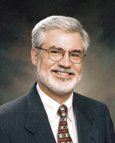Word & Way’s cover package in its July 17 issue is a variation of our usual issues-oriented approach. This one features photography and stories based on a trip I took back in the fall to Jordan, Israel’s neighbor to the immediate east across the River Jordan.

Bill Webb
Last summer, when I learned of the weeklong opportunity for a Christian media press tour through Associated Church Press, I recalled a similar and longer trip I had taken to the Hashemite Kingdom of Jordan back in 2006. Normally, I would not have given a return trip a second thought except for what was happening across the border in Syria, Jordan’s neighbor to the immediate north.
Because of the vicious civil war in Syria, I knew that hundreds of thousands of Syrians had already taken refuge in neighboring Arab countries. News reports had taken note of these people fleeing for their lives and, in many cases, the safety of their families. Many soon found themselves in Jordan, where a large refugee camp — a tent city — had been set up to house and feed families who fled with little or nothing.
I had also learned that even more had entered Jordan and found their own lodging in the sprawling capital city of Amman and in other parts of the nation. While the primary purpose of the Jordan Tourist Board-sponsored trip was tourism and visits to Christian and other attractions in the moderate Arab nation, I learned that we would be given most of a day of free time to pursue stories on our own.
Through a contact, Jim White, who was editor of the Religious Herald of Virginia at the time, and I were able to visit with two Syrian refugee families in Amman. Each rented simple space for their families, and the men in each family sought work on days when it was available. There were youngsters in each family. These refugees were struggling to get by, and they awaited every bit of news from relatives and friends still back in Syria.
Shortly after returning home, Jim and I — the only Baptists on the trip — wrote about our visits with these families and shared our impressions.
We heard stories of family members who had perished; we witnessed the scars from gunshot wounds on the legs of two young Syrian brothers caught in crossfire back home before their families fled their home in Syria. The contact, which occurred the second day of our visit, was a moving experience for both Jim and I.
On our hurried tour, we saw spectacular things in Jordan, including places where Jesus was baptized by John, where Moses gazed across the Jordan River Valley into the Promised Land, where the Hebrew children crossed the desert on their 40-year trek before entering what is modern-day Israel, where Jesus cast demons out of a man and into a herd of swine, where an ancient civilization built a fabulous city carved from stone (Petra) and more.
Jordan is a wonderful place to visit, if only to see these sites and some we did not experience, but it was hard during that week not to think about the refugees who had freely escaped into this country. I looked into the eyes of people who reminded me of my family — parents, my wife, my grandchildren and their parents, sons and others. Jim and I were not much different than the refugees as people; obviously our personal circumstances were radically different.
This trip and other experiences I have had over the past 40 years or so — sometimes abroad and more often in American locations — have broadened my awareness and my understanding of people. In general, individuals tend to make blanket assumptions about people and cultures they do not understand.
Even people of faith can be very insensitive in this regard. “All those people over in the Middle East want to do is fight and kill each other,” I have heard people say. Prior to leaving for this trip to Jordan, which I have found a safe place to visit, people queried me about concern for violence in the Middle East and my wisdom in even making the trip.
What I discovered on this most recent trip was the hospitality of people, even when their circumstances were dire and their personal resources were virtually non-existent. Even as we visited refugees, we were offered hot tea and a snack not because we were important but because these people were hospitable.
One of the joys of traveling among Jordanians was this sense that the people are special. In what today is a very tense part of the world, hospitality and individual respect for others is easily noticed in most situations. In the Middle East, hospitality is a cultural quality, many are surprised to learn. Mainly, it is a people thing, and it can be true of anyone.
Personally, I have discovered it in Latin America, Europe, Africa and other places overseas, as well as in the United States. You learn about people best sometimes by being with them in their own setting. It informs our understanding; we tend less to make negative blanket assumptions as though a whole culture resembles the person who makes the news for all the wrong reasons.
Whenever any of us view people as fellow human beings and seek to understand more about them, we break down stereotypes, and we help others see us in a better light, too.
Bill Webb is editor of Word & Way.

